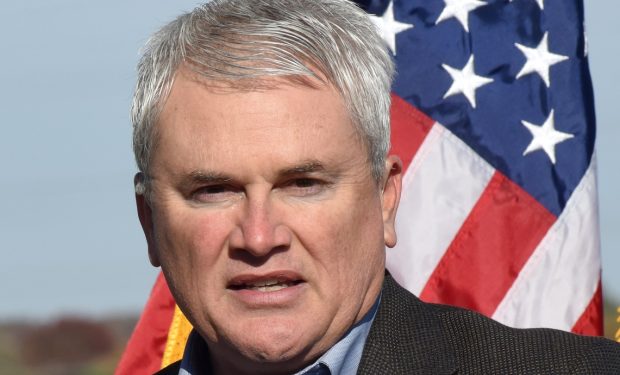U.S. Representative James Comer (R-KY), the chairman of the House Oversight Committee who has pushed for the impeachment of President Joe Biden while failing to present evidence of a crime committed by Biden, is criticizing the POTUS for using executive privilege to withhold the audio of his interview with Special Counsel Robert Hur.
Comer claimed on Newsmax: “There’s no difference in Joe Biden trying to hide these audio tapes and Richard Nixon trying to hide his audio tapes during the Watergate investigation.” He added, “This is something that should be readily available.”
Comer on Newsmax claims Biden not turning over audio tapes of interviews Republicans already have a transcript of is "no different than Watergate" pic.twitter.com/EGQcPYNo1J
— Aaron Rupar (@atrupar) May 21, 2024
Despite what Comer claims there are numerous differences between the two situations and the audio tapes in question. For one, the transcript of the Biden/Hur interview is (and has been) available online for anyone to read. “A political stunt” is what Republican Congressman Ken Buck (R-CO) called Comer’s attempt to hold Attorney General Merrick Garland in contempt for backing Biden and not turning over the audio.
Former GOP Rep. Ken Buck calls Comer/Jordan effort to hold AG Garland in contempt a “political stunt”
— Ian Sams (@IanSams46) May 16, 2024
“They released the transcript. They have the information. They’re just looking for something for political purposes.” pic.twitter.com/bd4eIxWfGe
[It’s widely believed that the Biden-Harris administration wants to withhold the audio in order to prevent Republicans, including the presumptive GOP presidential nominee Donald Trump, from cherry picking and manipulating the audio, including taking answers out of context, for use in smear campaign TV ads.]
Note: In 1973, Nixon-appointed Attorney General Elliott Richardson assigned Archibald Cox as Special Counsel on the Watergate investigation. When Cox subpoenaed Nixon’s Oval Office tapes (which had been, unlike Biden’s interview, kept a secret and which later revealed his complicity in the cover-up), Nixon refused, citing his executive privilege as president. One year later, the Supreme Court ruled unanimously (8–0) that claims of executive privilege over the tapes were void and ordered Nixon to release the tapes.
